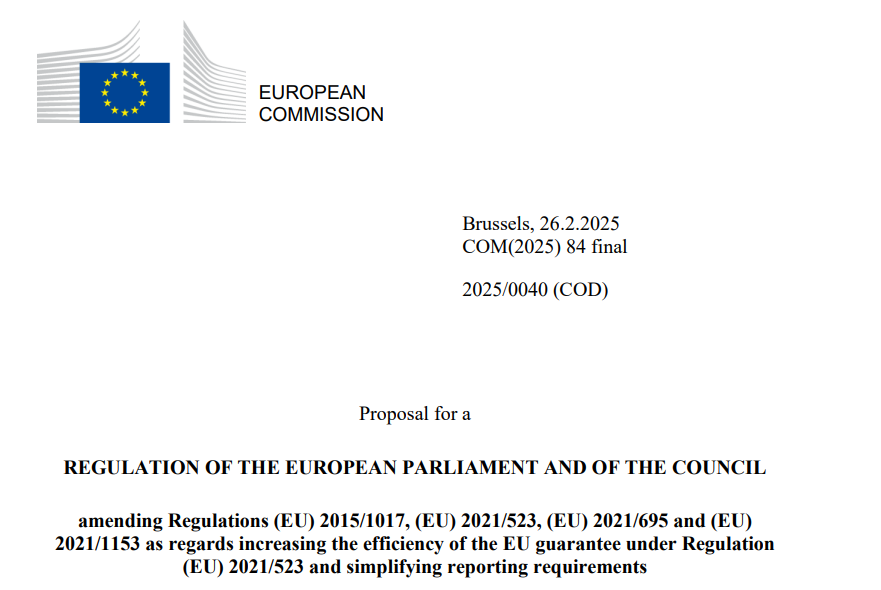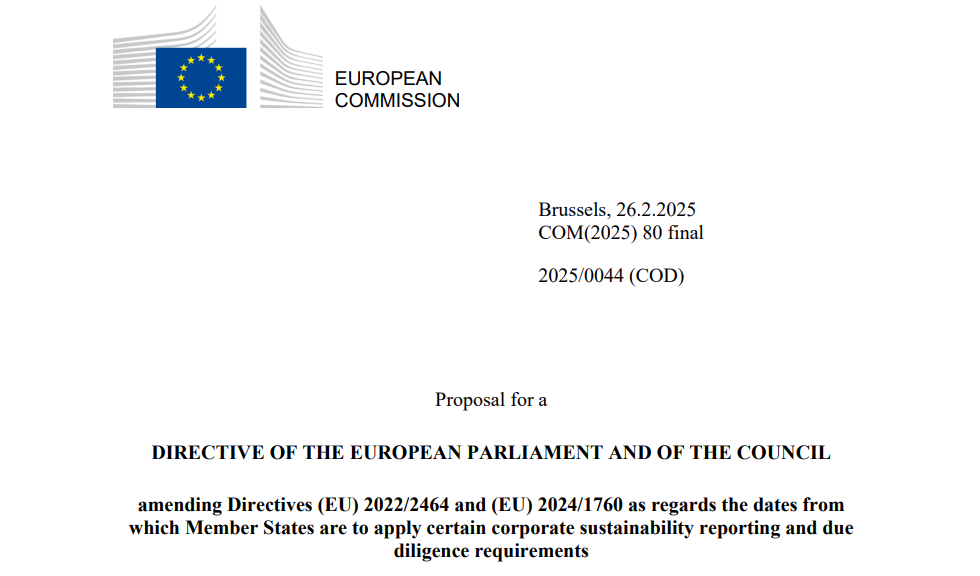EFRAG Revisions and Omnibus Proposals: Developments in EU Sustainability Reporting
In recent weeks, two parallel developments have advanced in the EU policy landscape related to sustainability disclosures. EFRAG has launched the revision process for the European Sustainability Reporting Standards (ESRS), while the European People’s Party (EPP) has published its draft position on the Commission’s proposed Omnibus package, outlining further changes to the CSRD and CSDDD.

Two key developments are currently underway in the EU sustainability reporting landscape. The European Financial Reporting Advisory Group (EFRAG) is in the process of revising the European Sustainability Reporting Standards (ESRS) to improve usability and reduce complexity. In parallel, a draft position by the European People’s Party (EPP) on the European Commission’s Omnibus proposal suggests substantial changes to the scope and requirements of the Corporate Sustainability Reporting Directive (CSRD) and the Corporate Sustainability Due Diligence Directive (CSDDD).
EFRAG’s Revision Process
EFRAG is currently revising the ESRS with a focus on improving clarity, usability, and proportionality. A first draft of the revised standards is expected in mid-June, with a second version due by mid-July. Technical work will conclude by the end of July, followed by a public consultation running through August and September.
According to the sources provided, EFRAG's revision process will focus on improving readability, reducing duplication, and reviewing the overall structure of the standards. EFRAG is also working to ensure greater consistency with the ISSB standards and alignment with the Sustainable Finance Disclosure Regulation (SFDR), reflecting stakeholder calls for interoperability and reduced reporting duplication.
Issues under review include disclosures on double materiality and value chain impacts, both of which have presented implementation challenges. The proposed revisions aim to maintain relevance while ensuring that reporting obligations are realistic for preparers. Narrative disclosures may be streamlined in favour of a principles-based approach.
EPP Position on the Omnibus Proposal
In a draft report released in June, Jörgen Warborn (EPP) proposed further changes to the Commission's Omnibus initiative. For both the CSRD and the CSDDD, where the Commission had proposed a 1,000-employee threshold under the Omnibus package, the EPP draft suggests raising it further to 3,000 and introducing a revenue criterion of €450 million.
The draft also proposes limiting value chain reporting requirements, particularly for SMEs. Under the suggested changes, companies would not be required to obtain information from business partners below the threshold. Instead, they could disclose the efforts made to gather such data, explain any limitations, and outline future plans to address information gaps. Mandatory transition plans would be replaced with voluntary reporting, and Member States would be restricted from implementing stricter national rules.
These proposals are positioned as measures to reduce regulatory complexity and associated costs. However, stakeholders including civil society organisations have raised concerns that such reductions may compromise the availability and consistency of sustainability-related information, particularly for financial market participants.
Next Steps and Considerations
EFRAG’s revisions and the Omnibus discussions represent different approaches to addressing stakeholder concerns about the challenges and administrative demands of sustainability reporting. While EFRAG remains within the structure of the CSRD framework, the EPP draft suggests more extensive changes to the regulatory baseline.
Negotiations within the European Parliament are expected to continue through the second half of the year, with a final position unlikely before October. Technical discussions on the ESRS revisions will proceed in parallel. The Council of the EU is also expected to consider its stance in the coming weeks.



